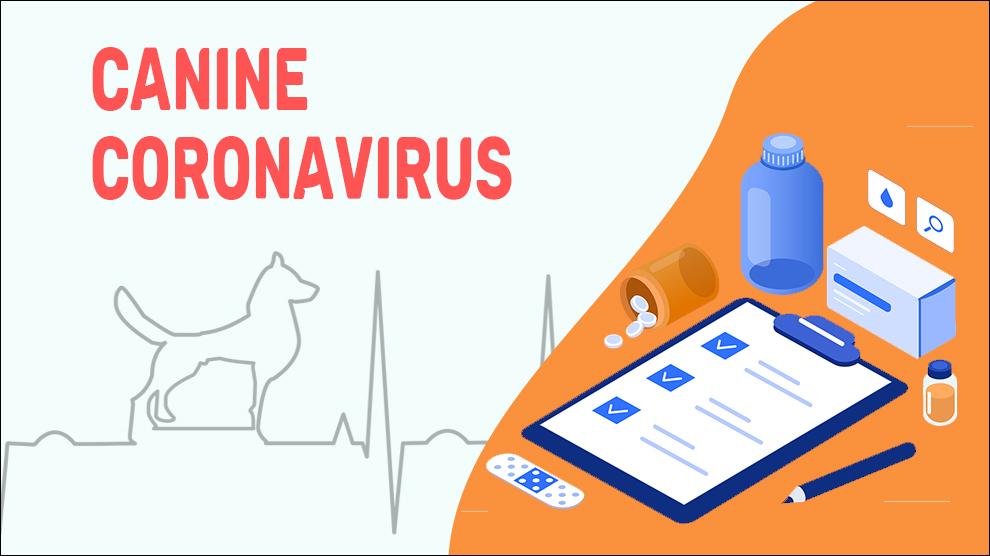What Is Canine Coronavirus?
Canine coronavirus is a contagious disease in dogs that affects the gastrointestinal system. It is caused by the canine coronavirus (CCoV), a type of virus that is highly infectious and easily transmitted between dogs.
The virus can lead to severe symptoms in dogs, such as diarrhea, vomiting, and dehydration. While there is no cure for canine coronavirus, early detection, and proper treatment can help manage the symptoms and prevent further complications.
Symptoms Of Canine Coronavirus
The symptoms of CCoV infection in dogs can vary widely and may include
- Diarrhea
- Vomiting
- Fever
- Lethargy
- Dehydration
- Loss of appetite
- Weight loss
In severe cases, dogs may develop severe dehydration and require hospitalization.
Treatment Options For Canine Coronavirus
There is no specific treatment for canine coronavirus, and most dogs recover on their own with supportive care, such as fluid therapy and medication to manage symptoms like diarrhea and vomiting.
However, in severe cases, hospitalization may be required to manage dehydration and other complications. Antibiotics may be prescribed to treat secondary bacterial infections that can occur as a result of the virus.
It is essential to work with a veterinarian to determine the appropriate treatment for your dog's individual case.
Home Remedies For Canine Coronavirus
There are some home remedies that may help to alleviate the symptoms of Canine Coronavirus, but they should not be used as a substitute for veterinary care.
Some of these remedies include:
Rest: Dogs with Canine Coronavirus may feel tired and lethargic. Allowing them to rest and limiting their activity can help them to recover.
Hydration: It is important to keep your dog hydrated by providing plenty of fresh water. If your dog is not drinking enough water, you can try adding a small amount of low-sodium chicken broth to its water to make it more appealing.
Nutrition: Providing your dog with a balanced diet can help to support their immune system and aid in their recovery. You can also try feeding your dog small, frequent meals to help alleviate any nausea or vomiting.
Probiotics: Probiotics can help to support your dog's digestive system and promote healthy gut bacteria. Talk to your vet about which probiotics may be beneficial for your dog.
Herbal remedies: Some herbs, such as chamomile and ginger, may help to alleviate gastrointestinal symptoms in dogs. However, it is important to talk to your vet before giving your dog any herbal remedies, as they can interact with other medications and may not be safe for all dogs.
It is important to remember that while these home remedies may provide some relief, they should not be used in place of veterinary care.
Canine Coronavirus can be a serious illness, and prompt treatment is necessary to help your dog recover.
How To Prevent Canine Coronavirus?
The best way to prevent CCoV infection is to practice good hygiene and sanitation. Owners should pick up their dog's feces promptly and dispose of them properly.
Surfaces that may be contaminated with CCoV should be cleaned thoroughly with a bleach solution. Dogs should also be kept away from other dogs with diarrhea and vomiting, and their bowls, toys, and bedding should not be shared.
Affected Dog Breeds Of Canine Coronavirus
Canine Coronavirus can affect dogs of all ages and breeds. However, puppies and immune-compromised dogs are at higher risk for developing severe diseases. Older dogs are also at an increased risk of complications.
Causes For Canine Coronavirus
Causes:
Canine coronavirus is spread through contact with infected feces, contaminated surfaces, or by close contact with an infected dog.
The virus can remain on surfaces for extended periods and can easily spread to other dogs in kennels, dog parks, or other areas where dogs congregate.
When To See A Vet For Canine Coronavirus?
If you suspect that your dog may have Canine Coronavirus, it is important to contact your veterinarian as soon as possible. A vet will be able to perform a physical exam and diagnostic tests to confirm the diagnosis and determine the best course of treatment.
Food Suggestions For Canine Coronavirus
Maintaining a healthy diet is important for all dogs, but it is especially crucial for dogs with canine coronavirus. It is important to provide your dog with easy-to-digest, low-fat, and high-fiber foods that will help manage symptoms like diarrhea and vomiting.
It is essential to avoid feeding your dog table scraps, fatty foods and treats that can aggravate symptoms
However, it is essential to ensure that they have access to clean water at all times to prevent dehydration. Some dogs may benefit from a bland diet, such as boiled chicken and rice, to help reduce gastrointestinal upset.
Conclusion
Canine Coronavirus is a highly contagious viral infection that can cause mild to severe illness in dogs. While there is no specific treatment for CCoV, supportive care can help manage symptoms, and most dogs will recover on their own.
Prevention through good hygiene and sanitation is the best way to avoid infection, and owners should seek veterinary care if their dog develops severe symptoms or becomes dehydrated.
With proper care and attention, most dogs with CCoV will make a full recovery.

















